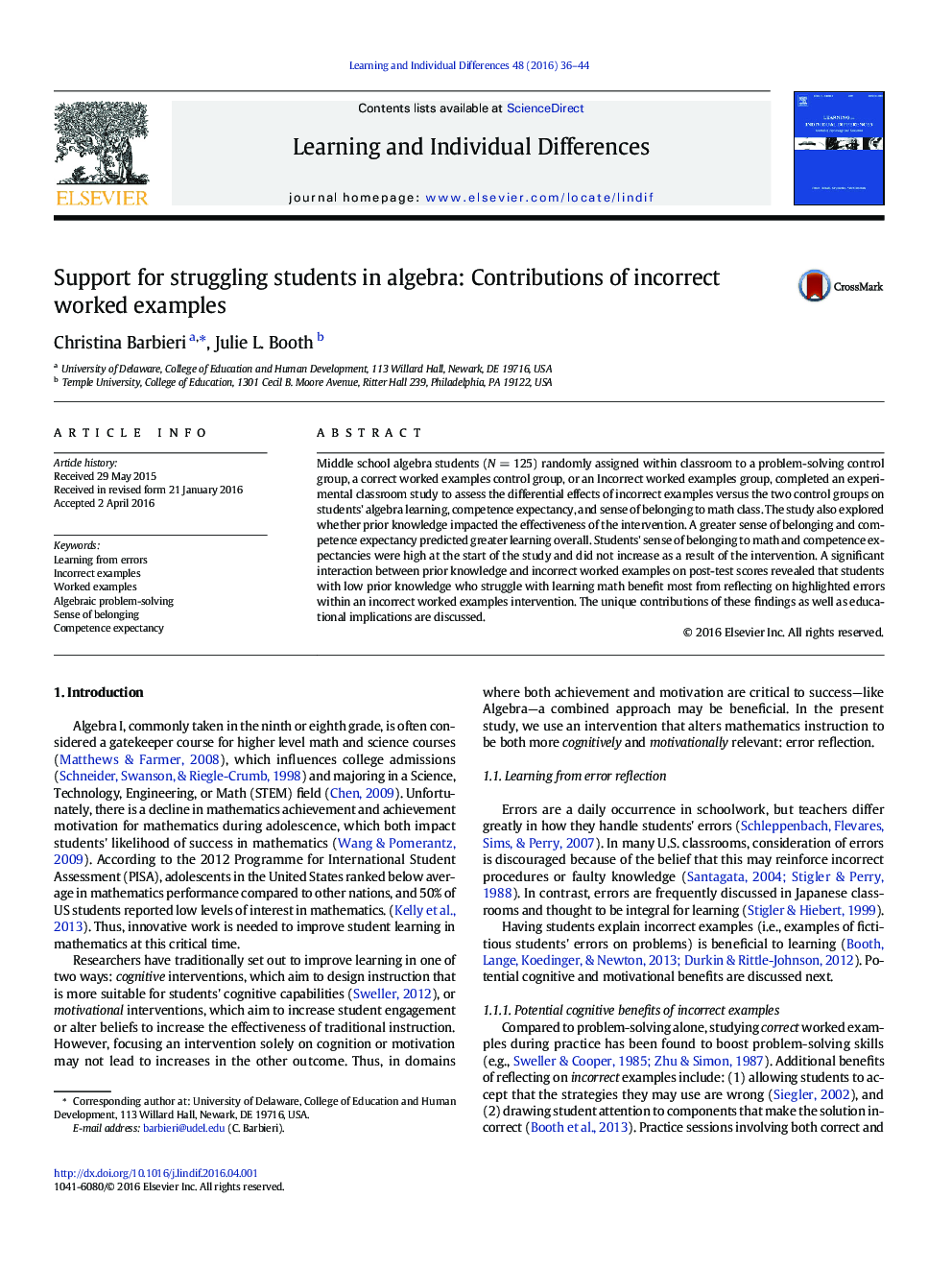| Article ID | Journal | Published Year | Pages | File Type |
|---|---|---|---|---|
| 6844865 | Learning and Individual Differences | 2016 | 9 Pages |
Abstract
Middle school algebra students (NÂ =Â 125) randomly assigned within classroom to a problem-solving control group, a correct worked examples control group, or an Incorrect worked examples group, completed an experimental classroom study to assess the differential effects of incorrect examples versus the two control groups on students' algebra learning, competence expectancy, and sense of belonging to math class. The study also explored whether prior knowledge impacted the effectiveness of the intervention. A greater sense of belonging and competence expectancy predicted greater learning overall. Students' sense of belonging to math and competence expectancies were high at the start of the study and did not increase as a result of the intervention. A significant interaction between prior knowledge and incorrect worked examples on post-test scores revealed that students with low prior knowledge who struggle with learning math benefit most from reflecting on highlighted errors within an incorrect worked examples intervention. The unique contributions of these findings as well as educational implications are discussed.
Related Topics
Social Sciences and Humanities
Psychology
Developmental and Educational Psychology
Authors
Christina Barbieri, Julie L. Booth,
